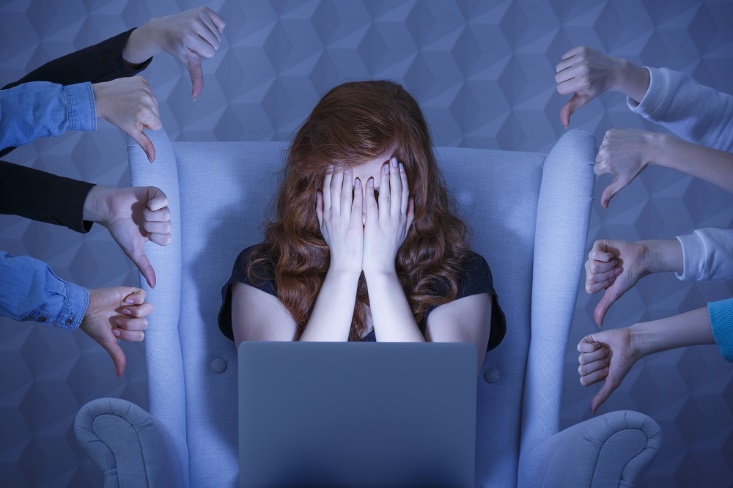The impact of social media on every aspect of our lives is huge. It has become the way how we communicate with one another and, at times, with ourselves. We can only keep up with friends, family, and current events with the assistance of social media. Social media usage may positively impact our lives if it is used well and in moderation; nevertheless, it can be damaging if it is misused or in excess. This article will discuss how social media is shaping our world and a closer look at its impact on society.
Impact of social media on our lives
Despite all the benefits it offers, social networking is associated with several drawbacks:
Online versus Real, the social media platforms themselves are fine. It is a way in which individuals substitute technology for genuine conversation and engagement with other people. It’s possible that people you call “friends” online are really total strangers.
Improved application the amount of time spent on social media platforms is directly correlated to the increased likelihood of being bullied online, experiencing social anxiety, clinical depression, and being exposed to improper content.
The use of social media may be somewhat addicting. Whether you’re engaged in a game or doing a task, you always try your hardest to perform at the highest level. If you are successful, your brain will produce dopamine and other chemicals associated with pleasure, which will cause you to feel delighted. Both Instagram and Facebook employ the identical procedure when a picture is uploaded to either platform. Unconsciously, you will begin to see it as a reward as soon as you simultaneously see all of the notifications for likes and positive comments popping up on your screen. In addition, mood-altering events may be found in plenty on social media.
Fear of Being Left Behind The ubiquitous occurrence of the psychological phenomenon known as “fear of missing out” often induces people to check social media sites at all times. The anxiety that you will be missing out on something important if you cannot use the internet may harm your mental health.
Cyberbullying, Around 10% of teenagers report being bullied online, while the vast majority of users are exposed to inappropriate messages. Twitter and other social media sites might be used as a breeding ground for harmful rumours, hoaxes, and abuse, all of which could cause long-lasting psychological scars if they were to become viral.
Problems with one’s own sense of self-appraisal Members of social networking sites may gauge how they seem in the eyes of other members of the community, and users can also rate the qualities of their fellow networkers. There may be a link between this and self-consciousness about one’s appearance. Those who spend a lot of time online, both reading and writing, are more likely to be impacted. If a college-aged woman logs into Facebook at least five times a day, she is quite likely to associate her self-worth with how she seems to others. While social media platforms like Facebook and Twitter certainly contribute to the problem by providing a platform for it, they are not the root cause. Moreover, it motivates others to follow suit.
Social Media Effects on Mental Health
We should think about how using social media could affect our mental health and our viewpoint.
Mistreatment, including harassment. A major issue with social media is the way it may open doors for bullying and harassment. Many individuals are the targets of online bullying and harassment from those who want to make them feel bad about themselves. Insults and other types of verbal abuse in public comment threads may have an impact on many people, not just the one who are directly targeted by them.
Insecurities and a feeling of isolation the usage of social media, which is supposed to help us feel more connected and comfortable in our connections with others, has been shown to instead increase feelings of anxiety and isolation. So why does this keep happening? Undeniably, there are several different elements at play here. A person with “fear of missing out” (FOMO) feels a constant need to check social media even when they aren’t actively utilizing it because they are worried about missing out on the fun that other people are enjoying while they are online. It’s understandable if you’ve been feeling uneasy about sharing so much of yourself on social media. In addition, the very act of using social media might give us the illusion that we are interacting with others. In actuality, it stops us from engaging in the most productive kind of social connection, which is direct, face-to-face communication.
The psychological phenomena are known as echo chambers. Users of social media often choose to self-isolate in particular ways, such as by removing themselves as friends or followers of sites with which they disagree and actively seeking out others whose perspectives are similar to their own. This encourages the establishment of echo chambers, which are communities in which the same tale is repeated repeatedly. This, in turn, makes it more difficult for us to be receptive to new ideas, causes us to despise individuals who disagree with us, and in some instances, enables us to continue believing things that aren’t true.
Social Media Causes Health issues
The use of social media may lead to addictive behaviors and disrupt sleep patterns. The usage of electronic gadgets like mobile phones and video games an hour or so before going to bed has been linked to various sleep problems. Since they are too tired, students could nod off in class or be unable to focus on the teacher’s words.
The impact of social media must be considered. It may make global relationships easier and inspire people to make a difference in their communities. Despite this, we must acknowledge the negative impact of social media having on our lives. It is crucial to be aware that you must also nurture connections in person, rather than only via a screen, and that we do not need to use social media every waking minute of our lives.
Parenting in the Age of Social Media: Tips for Keeping Kids Safe and Healthy
You should encourage the ethical use of social media and reduce some of the adverse effects of its usage. Take into account the following:
Make limits that are fair. Have a discussion with your kid about how they can manage their time on social media so it doesn’t get in the way of more important things like sleeping, eating, and doing their schoolwork. Remove electronic devices from bedrooms and suggest a regimen that does not involve using them before bed.
Keep an eye on what your teen-age is doing online, and make sure your child is aware that you will often check their various social media pages. You can do it once a week or even more often. Make sure you see things through to the end.
Describe what’s not ok; your child should be discouraged from indulging in gossip, rumor-spreading, bullying, or harming someone else’s reputation in any setting, both online and offline. Have a conversation with your teen about what kind of content is appropriate and safe to post on social media.
Encourage one-on-one communication with your close buddies. This is of utmost importance for children and teenagers who are at risk for social anxiety disorder.
Discuss social media, and Share your own social media usage. Ask you’re adolescent about their experience with social media and how it makes them feel when they use it. Inform your child that many of the photographs they see on social media are not real.
You should discuss your concerns with the healthcare provider who cares for your kid if you think that the impact of social media is causing your teenager to experience mental health issues such as anxiety or depression.
About Author: The content is written by Shagufta. She has been writing personal wellness and health articles for the past six years.














